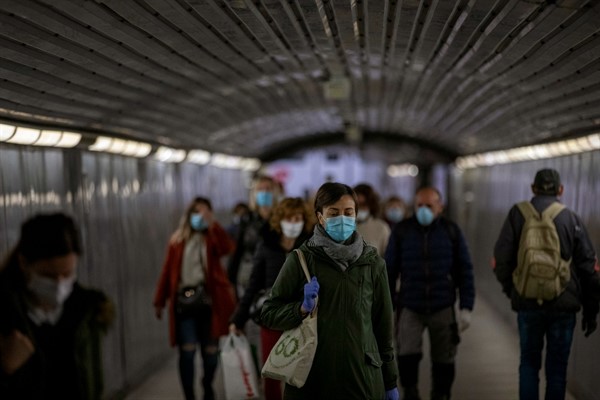With China having lifted the lockdown in place in Wuhan since the end of January, and many European countries and parts of the United States beginning to envisage how they, too, will gradually ease social distancing measures, the second phase of the response to the coronavirus pandemic is coming into focus. Central to already active debates in Western democracies, at least, is the balance to be struck between addressing the urgency of the public health crisis and managing the growing impact of social distancing on national economies and individual livelihoods.
At first glance, the choice seems to be an obvious one. After all, everywhere the social distancing measures have been introduced, they have proved to be effective at containing the spread of the viral outbreak. More importantly, for now, they are the only effective way to do so. According to epidemiologists, without the widespread availability of mass testing and the ability to conduct exhaustive contact tracing, any premature return to “normal” will inevitably lead to further waves of uncontrolled transmission, requiring periodic shutdowns.
At the same time, as compelling as the public health concerns are, the economic impact of essentially putting entire economies into self-induced comas promises to be no less catastrophic. The U.S. and governments in Europe rapidly put into place massive rescue packages to replace lost income and preserve jobs, respectively. But none of them will prevent the economic contractions that forecasters believe will rival the Great Depression in scale and eclipse it in rapidity. Combined with the uncertain length of the duration of COVID-19’s economic disruption, the toll on societies in the developed world is hard to imagine. It will be even worse in vulnerable countries that lack the economic wherewithal and medical capacity to meaningfully offer their citizens anything but a choice between disease and starvation.

